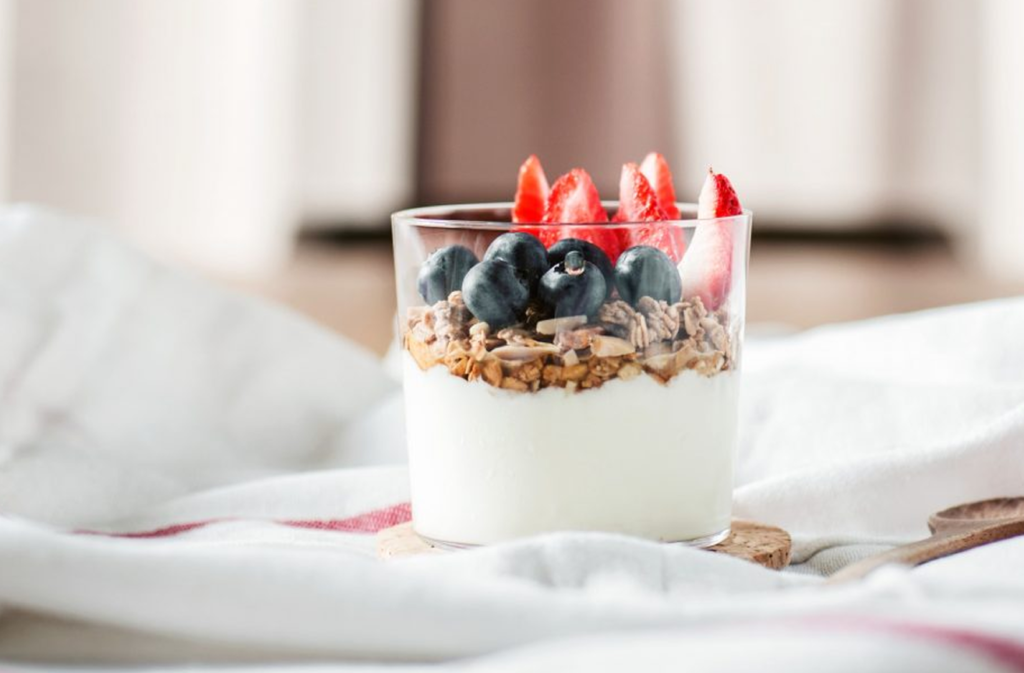You may have heard about probiotics in the media lately – promoting their immune boosting properties in the era of COVID-19. It’s true – probiotics are crucial for your immune health. It’s important to note, though, that as of yet no scientific evidence shows a link between probiotics and COVID-19 prevention. The best way to prevent COVID-19 is still to stay home, wash your hands often, and disinfect commonly touched surfaces. However, even if probiotics can’t singlehandedly fight COVID-19 for you, there are still plenty of reasons to up your probiotic intake! Read on for 7 potential pros of probiotics.
- Restore balance of your gut bacteria. Your gut’s natural balance of bacteria includes both “good” and “bad” bacteria. Consuming probiotics adds good bacteria to the gut, balancing out the existing bad bacteria.
- Protect your body from infections. Studies have shown that probiotics may help reduce the risk for urinary tract and respiratory infections.
- Improve your mental health. A growing body of evidence also suggests that probiotic supplements may help reduce depression, anxiety, and other mental health conditions.
- Prevent diarrhea. When your gut is in dysbiosis (i.e., microbial imbalance), it can lead to diarrhea. By maintaining microbial balance in the gut, you can help prevent diarrhea and other digestive symptoms.
- Reduce cholesterol levels. Probiotics can help bacteria break down bile, preventing bile from being absorbed back into the body as cholesterol. Some studies have noted a decrease in LDL (“bad”) cholesterol for participants taking probiotic supplements.
- Relieve allergy symptoms. Some research suggests that probiotic supplements can reduce symptoms for people suffering from seasonal or food allergies, although other studies disagree. More research is needed on this topic.
- Treat or prevent eczema. Some studies have noted that probiotics given to children can help prevent the onset of eczema. Another study found that children born to mothers who took probiotics were less at risk for developing eczema. We still need more evidence on this association, however.
In order to increase your probiotic intake, you can do so through food or supplements. Unfortunately, supplements can be expensive. Luckily, there are many food options to increase your probiotic intake such as yogurt, sauerkraut, kimchi, kombucha, and pickles. Probiotics are important, but it’s also important to make sure they make it to your gut. Prebiotics, such as fiber, help to ensure the good bacteria remain in your system. For this reason, it’s important to also eat lots of fruits and vegetables (which are heavy in fiber) along with your probiotic-heavy foods and/or supplements.
When Dr. Nagula was first diagnosed with cancer, he turned a critical lens on his diet. One important change he made was adding probiotic supplements to his daily routine. Thanks to this and many other lifestyle changes, Dr. Nagula fought cancer and won. For more information on Dr. Nagula’s transformative journey through cancer and life, check out his book “From Doctor to Patient” here.

